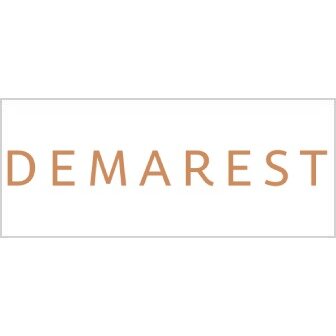Best Reinsurance Lawyers in São Paulo
Share your needs with us, get contacted by law firms.
Free. Takes 2 min.
List of the best lawyers in São Paulo, Brazil
About Reinsurance Law in São Paulo, Brazil
Reinsurance in São Paulo, Brazil, refers to the practice where an insurance company (the cedent) transfers portions of its risk portfolio to other insurance companies (the reinsurers) to reduce the potential losses from large claims. This process is crucial for managing risks and ensuring the financial stability of insurance companies. The Brazilian reinsurance market, previously a monopoly by the state-owned IRB Brasil RE, has been open to competition since 2007, allowing for a dynamic and competitive market. São Paulo is a central hub for insurance and reinsurance activities due to its large financial market and economic significance in Brazil.
Why You May Need a Lawyer
There are several circumstances where you might require legal assistance in the field of reinsurance in São Paulo:
- Negotiating and drafting reinsurance contracts, ensuring terms are favorable and comply with local laws.
- Litigating disputes arising from reinsurance agreements, such as disagreements over claim payments or contract interpretations.
- Navigating regulatory requirements and ensuring compliance with the Brazilian Superintendence of Private Insurance (SUSEP).
- Seeking advice on mergers and acquisitions involving reinsurance companies.
- Handling cross-border reinsurance transactions and understanding international legal implications.
Legal advice is invaluable in these situations to minimize risks and protect your interests.
Local Laws Overview
The reinsurance sector in São Paulo is regulated by several critical laws and regulations aimed at ensuring market stability and protecting stakeholders. Key aspects include:
- Regulatory Authority: The Superintendence of Private Insurance (SUSEP) regulates and supervises the reinsurance market in Brazil, establishing norms and practices for the industry.
- Local Reinsurer Requirement: Some reinsurance must be placed with local reinsurers to promote market domestication and stability.
- Financial Security: Regulations stipulate financial solvency requirements for reinsurers to guarantee their ability to cover claims.
- Contractual Terms: Specific laws govern the agreements between insurers and reinsurers, including contract formation, execution, and enforcement.
- Insurance Contracts Law: The Brazilian Civil Code also affects reinsurance agreements, particularly regarding general contract principles.
Understanding these laws is essential for anyone involved in reinsurance operations in São Paulo.
Frequently Asked Questions
What is the role of SUSEP in reinsurance?
SUSEP is the regulatory body responsible for overseeing the Brazilian reinsurance market, ensuring compliance with industry standards, and maintaining market stability.
Why is local placement of reinsurance required?
This requirement aims to strengthen the domestic insurance market by ensuring that a portion of reinsurance business is conducted with locally established companies.
How is a reinsurance contract structured in Brazil?
Reinsurance contracts typically include terms regarding the scope of coverage, liability limits, claims handling, and dispute resolution, all subject to SUSEP regulations.
Can a foreign reinsurer operate in São Paulo?
Yes, foreign reinsurers can operate, but they must meet SUSEP's registration requirements and may face specific limitations compared to local entities.
What types of reinsurance are available in São Paulo?
Core types include proportional reinsurance (e.g., quota share, surplus line) and non-proportional reinsurance (e.g., excess of loss), each addressing different risk management needs.
Are there tax implications for reinsurance transactions?
Yes, reinsurance transactions may involve specific tax considerations, including premium taxation and withholding taxes, which can vary based on the entities involved.
What happens in case of a reinsurance dispute?
Disputes are generally resolved through litigation or arbitration, and involving a legal expert with reinsurance experience is crucial to navigate complex issues.
Can reinsurance contracts be tailored?
While standardized contracts exist, they can often be customized to better suit the needs of the parties involved, provided they remain within regulatory compliance.
How do mergers affect reinsurance contracts?
In mergers or acquisitions involving reinsurers, existing contracts may need to be reviewed, amended, or novated to reflect the new corporate structure.
What is the impact of international treaties on Brazilian reinsurance?
International treaties can influence the Brazilian reinsurance market by affecting cross-border transactions and creating reciprocal arrangements with other countries.
Additional Resources
For more information or assistance, consider the following resources:
- SUSEP: The Superintendence of Private Insurance for regulatory materials and guidance.
- FUNENSEG: The National School of Insurance can provide educational resources and courses on reinsurance.
- ABDR: Brazilian Association of Reinsurance for industry insights and professional networking opportunities.
- Legal firms specializing in insurance law for expert advice on specific cases.
Next Steps
If you require legal assistance in reinsurance, consider the following steps:
- Research local law firms with expertise in insurance and reinsurance law.
- Schedule consultations to discuss your specific needs and explore your options.
- Gather all relevant documentation and information pertinent to your case for review by your legal advisor.
- Ensure ongoing compliance with Brazilian reinsurance regulations to avoid legal complications.
By following these steps, you can effectively address reinsurance legal issues in São Paulo with professional guidance.
Lawzana helps you find the best lawyers and law firms in São Paulo through a curated and pre-screened list of qualified legal professionals. Our platform offers rankings and detailed profiles of attorneys and law firms, allowing you to compare based on practice areas, including Reinsurance, experience, and client feedback.
Each profile includes a description of the firm's areas of practice, client reviews, team members and partners, year of establishment, spoken languages, office locations, contact information, social media presence, and any published articles or resources. Most firms on our platform speak English and are experienced in both local and international legal matters.
Get a quote from top-rated law firms in São Paulo, Brazil — quickly, securely, and without unnecessary hassle.
Disclaimer:
The information provided on this page is for general informational purposes only and does not constitute legal advice. While we strive to ensure the accuracy and relevance of the content, legal information may change over time, and interpretations of the law can vary. You should always consult with a qualified legal professional for advice specific to your situation.
We disclaim all liability for actions taken or not taken based on the content of this page. If you believe any information is incorrect or outdated, please contact us, and we will review and update it where appropriate.











